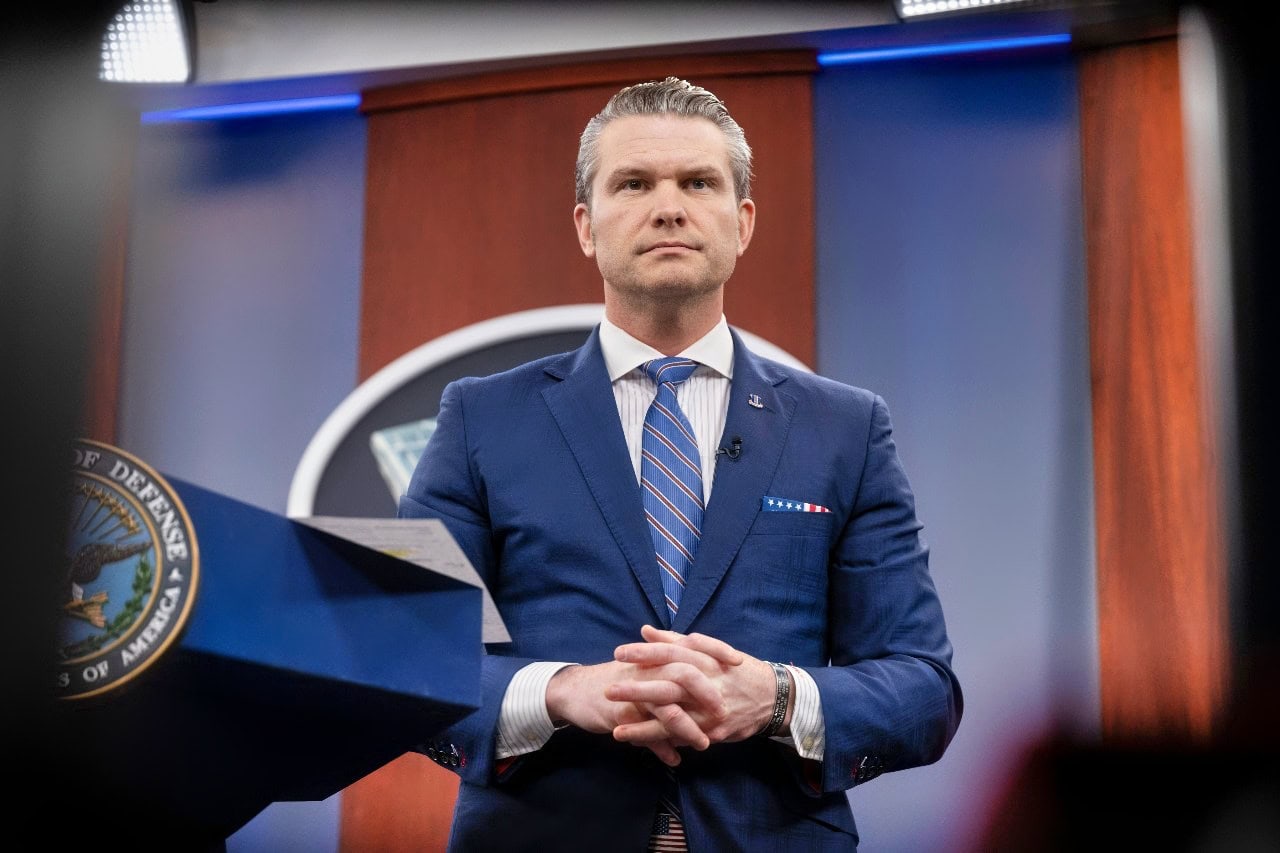For his own sake and the sake of the country, Pete Hegseth should resign as Secretary of Defense.
“Signalgate” demonstrates that he is fully out of his depth within Trump’s national security team, and it’s time for him to go before he seriously damages national security.
Signalgate Only Proves Pete Hegseth Can’t Do The Job
No few analysts pointed out that Hegseth was completely unqualified for the position.
He has no senior policy experience, no management experience of any large-scale political organization, no specific expertise in the national security enterprise, no political base outside his relationship with President Trump, and military experience that is, by the standards of the Pentagon, quite minimal.
Add to this allegations of alcoholism and sexual assault, and Secretary Hegseth entered his position as quite probably the weakest Secretary of Defense since the inception of the position.
We cannot overstate the degree of difficulty of the position of Secretary of Defense of the United States of America. Overseeing the national security enterprise is an immensely difficult job, one that has challenged and overwhelmed men (no woman has ever served in the position) of exceptional public and private professional experience.
No one wins at SecDef; they just lose more slowly. By contrast, the duties of the Vice President famously don’t amount to “a bucket of warm spit.”
With regard to Hegseth’s drinking, his promise to stop consuming alcohol during his tenure as SecDef was met with widespread skepticism and even ridicule within the recovering alcoholic community. Wherever Hegseth fell on the continuum from Heavy Drinker, Problem Drinker, and Committed Alcoholic, the process of quitting alcohol is deeply stressful in personal and professional terms. We know nothing of the assistance that Secretary Hegseth may have sought during this process, but the prospect of matching the professional demands of the world’s most difficult job while at the same time undergoing a profound lifestyle change is, in a word, daunting.
Worse, Secretary Pete Hegseth sounds like someone suffering from Impostor Syndrome, a psychological condition in which a person doubts their own experience, expertise, and competence. Impostor Syndrome is exceedingly common in academia and in professional life; most graduate students, for example, confess to suffering from some degree of insecurity with respect to their own intellectual capabilities and those of their peers.
Most graduate students work through this problem (or learn to deal with it, at least) but few grad students find themselves suddenly thrust into the world’s most difficult job, surrounded by policy principals of immense professional accomplishment. And while Hegseth is widely known to exhibit a blustery self-confidence, the combination of narcissism and impostor syndrome is hardly unknown.
Hegseth’s contribution to the now infamous “Houthi Signal Chat” looks to my admittedly inexpert eye like the work of someone suffering deeply from impostor syndrome. He eschews any serious strategic discussion in favor of simple bromides about restoring freedom and deterrence, along with locker room-style insults of the Europeans. Hegseth follows these up with the most problematic part of the entire conversation, the pasting of details of the attack into the chat.
These details (almost certainly classified) changed the chat from embarrassing to legally problematic, a point that Hegseth himself didn’t seem to realize. Rather, his contribution looks very much like the work of someone who wants desperately to belong despite suspicion that they do not merit inclusion, not unlike a graduate student in seminar making a comment in order to convince everyone (including themselves) that they actually deserve to be there.
Hegseth’s response to Signalgate has made everything worse. He attacked Jeffrey Goldberg even as the White House acknowledged the authenticity of the transcript. Unlike National Security Advisor Mike Waltz, he has rejected any responsibility for the scandal.
While Hegseth’s feistiness and loyalty may impress President Trump, it doesn’t suggest that he either understands the gravity of the situation or has a strong sense of his own role in the scandal. Neither of these are positive indications with respect for his capacity to do the job of Secretary of Defense.

Donald Trump speaking with supporters at a campaign rally at Veterans Memorial Coliseum at the Arizona State Fairgrounds in Phoenix, Arizona. By Gage Skidmore.
Signalgate Means Time to Go for Pete Hegseth
It’s time to end the mistake of Secretary of Defense Pete Hegseth. He can largely end this scandal now, before it deals too much damage to the rest of the administration. For his own sake, he needs time to manage his personal situation, time that no SecDef has ever had.
He should not have been nominated for this position, he should not have accepted that nomination, and he should not have been confirmed. Fortunately, there’s still time to solve all of those problems.
About the Author: Dr. Robert Farley
Dr. Robert Farley has taught security and diplomacy courses at the Patterson School since 2005. He received his BS from the University of Oregon in 1997, and his Ph. D. from the University of Washington in 2004. Dr. Farley is the author of Grounded: The Case for Abolishing the United States Air Force (University Press of Kentucky, 2014), the Battleship Book (Wildside, 2016), Patents for Power: Intellectual Property Law and the Diffusion of Military Technology (University of Chicago, 2020), and most recently Waging War with Gold: National Security and the Finance Domain Across the Ages (Lynne Rienner, 2023). He has contributed extensively to a number of journals and magazines, including the National Interest, the Diplomat: APAC, World Politics Review, and the American Prospect. Dr. Farley is also a founder and senior editor of Lawyers, Guns and Money.

